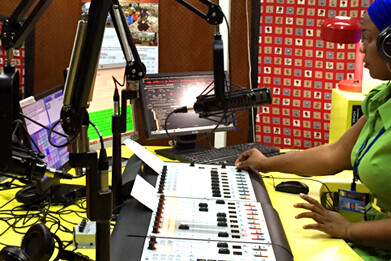South African public service broadcasting is experiencing deep unrest following a series of measures, which are limiting the production of and access to news in the country.
Starting in May, South African Broadcasting Corporation (SABC) Chief Operating Officer, Hlaudi Motsoeneng, reportedly ordered working members not to cover protests over the local elections due on 3 August. He later set a mandate to air only positive news about the country’s president, Jacob Zuma. Three journalists were suspended as they did not comply with these rules. Shortly after, the CEO, Jimy Matthews resigned because of the “corrosive atmosphere” in the company.
The African National Congress (ANC) said to News24 that these censorship allegations are very serious and should be investigated. ANC’s spokeperson, Zizi Kodwa, said that censorship does not fit in with the principle of constitutional democracy, and that SABC should resolve these issues in a way that endorses freedom of the press.
Media NGOS and journalists gathered outside the public broadcaster’s Auckland Park offices, in Johannesburg, on Friday to protest against the recent events. In addition, former SABC news editors, chief executives, and board members wrote a letter to the president, the communications minister and the chairman of the SABC board. “We express grave concern that the SABC has deviated from the clear principles of good broadcasting,” they said.
However, not everyone is protesting. Some artists are backing Motsoeneng, stating that his work for SABC helped to develop the South African artistic scene. “We know that there are other things that are happening but for us this is the man that made it possible for us, this is the man that made it possible for us South African artists,” said Don Laka, member of the South African Music Movement.
Nonetheless, the situation is concerning many media professionals. “To see it going backwards like this is heart-breaking,” said former deputy CEO of the SABC, Govin Reddy, who also signed the letter. A number of former employees propose a series of changes that include an end to censorship, an improved working environment and strong measures to be taken against those responsible for censorship. “The state of fear under which SABC employees are working is not conductive to good journalism or programming,” the letter says, asking to establish an independent task team that can allow employees to work without any fear of victimisation.
SABC is the main broadcasting institution in South Africa and its work weighs on the country’s politics. Now however, it seems to be preventing the population from accessing information, making censorship one of its main lines of action.
By Marta Catalano
